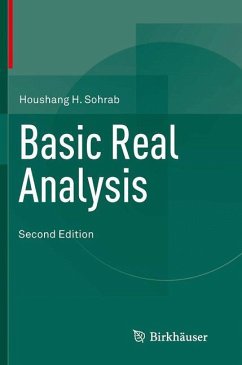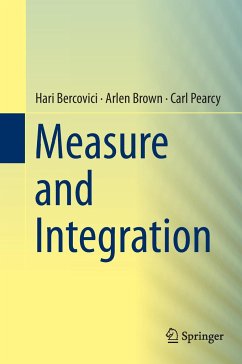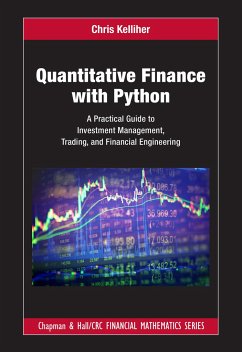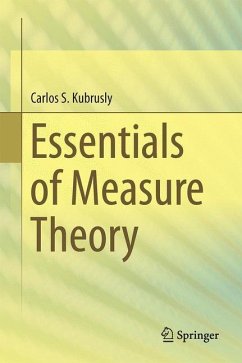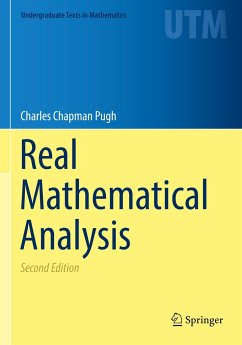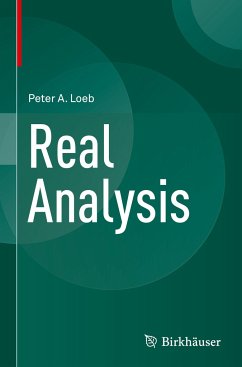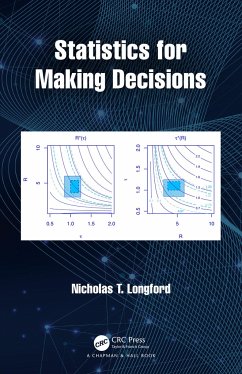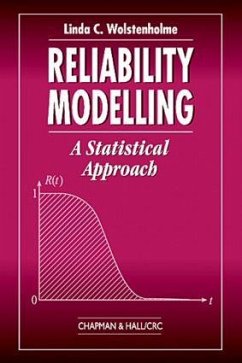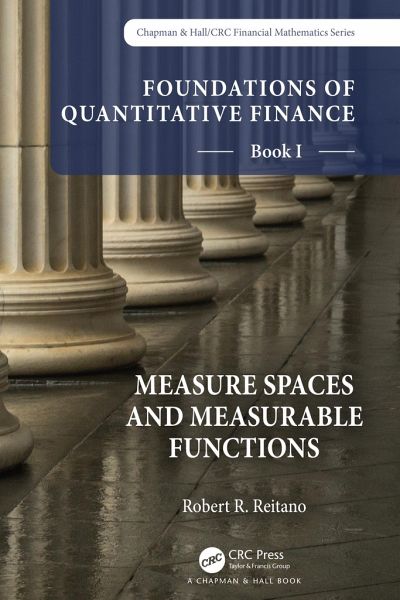
Foundations of Quantitative Finance, Book I
Measure Spaces and Measurable Functions
Versandkostenfrei!
Versandfertig in 6-10 Tagen
71,99 €
inkl. MwSt.
Weitere Ausgaben:

PAYBACK Punkte
36 °P sammeln!
This is the first in a set of 10 books written for professionals in quantitative finance. These books fill the gap between informal mathematical developments found in introductory materials, and more advanced treatments that summarize without formally developing the important foundational results professionals need.Book I in the Foundations in Quantitative Finance Series develops topics in measure spaces and measurable functions and lays the foundation for subsequent volumes. Lebesgue and then Borel measure theory are developed on , motivating the general extension theory of measure spaces tha...
This is the first in a set of 10 books written for professionals in quantitative finance. These books fill the gap between informal mathematical developments found in introductory materials, and more advanced treatments that summarize without formally developing the important foundational results professionals need.
Book I in the Foundations in Quantitative Finance Series develops topics in measure spaces and measurable functions and lays the foundation for subsequent volumes. Lebesgue and then Borel measure theory are developed on , motivating the general extension theory of measure spaces that follows. This general theory is applied to finite product measure spaces, Borel measures on n, and infinite dimensional product probability spaces.
The overriding goal of these books is a complete and detailed development of the many mathematical theories and results one finds in popular resources in finance and quantitative finance. Each book is dedicated to a specific area of mathematics or probability theory, with applications to finance that are relevant to the needs of professionals. Practitioners, academic researchers, and students will find these books valuable to their career development.
All ten volumes are extensively self-referenced. The reader can enter the collection at any point or topic of interest, and then work backward to identify and fill in needed details. This approach also works for a course or self-study on a given volume, with earlier books used for reference.
Advanced quantitative finance books typically develop materials with an eye to comprehensiveness in the given subject matter, yet not with an eye toward efficiently curating and developing the theories needed for applications in quantitative finance. This book and series of volumes fill this need.
Book I in the Foundations in Quantitative Finance Series develops topics in measure spaces and measurable functions and lays the foundation for subsequent volumes. Lebesgue and then Borel measure theory are developed on , motivating the general extension theory of measure spaces that follows. This general theory is applied to finite product measure spaces, Borel measures on n, and infinite dimensional product probability spaces.
The overriding goal of these books is a complete and detailed development of the many mathematical theories and results one finds in popular resources in finance and quantitative finance. Each book is dedicated to a specific area of mathematics or probability theory, with applications to finance that are relevant to the needs of professionals. Practitioners, academic researchers, and students will find these books valuable to their career development.
All ten volumes are extensively self-referenced. The reader can enter the collection at any point or topic of interest, and then work backward to identify and fill in needed details. This approach also works for a course or self-study on a given volume, with earlier books used for reference.
Advanced quantitative finance books typically develop materials with an eye to comprehensiveness in the given subject matter, yet not with an eye toward efficiently curating and developing the theories needed for applications in quantitative finance. This book and series of volumes fill this need.





